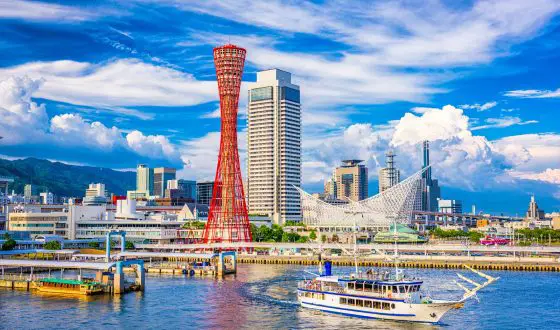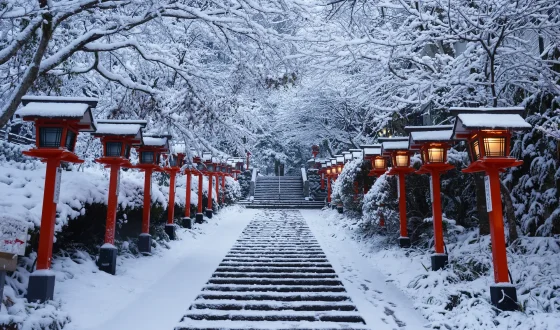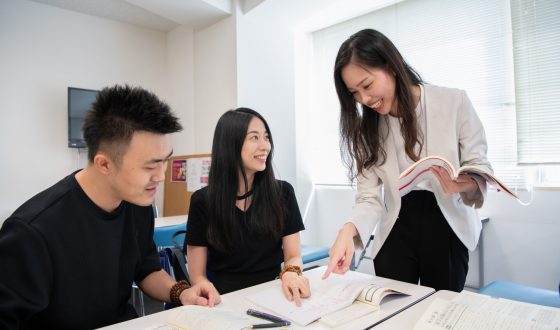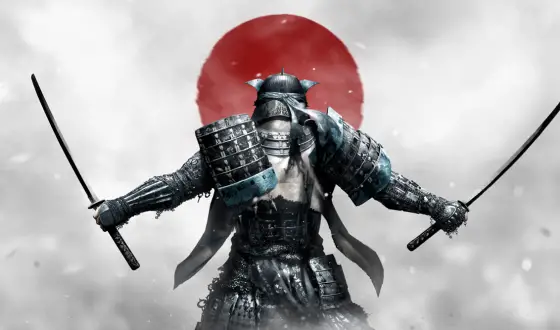Studying Abroad in Japan – The A-Z Guide
For the last decade, Japan’s education system has always been among the most high performance in the world. No doubt, the Land of the Rising Sun also becomes a desirable destination in Asia for foreign students. There are myths that studying abroad in Japan is expensive and difficult. Is it? Not really, the article will guide you through all the steps and information you need to land a higher education degree in Japan.
Japanese Educational System
Japanese educational system is considered one of the most well-structured and developed in the world. From kindergarten to university, students and parents can choose between affordable public schools to more competitive private schools.
Regarding higher education, there is also a variety of choices:
University
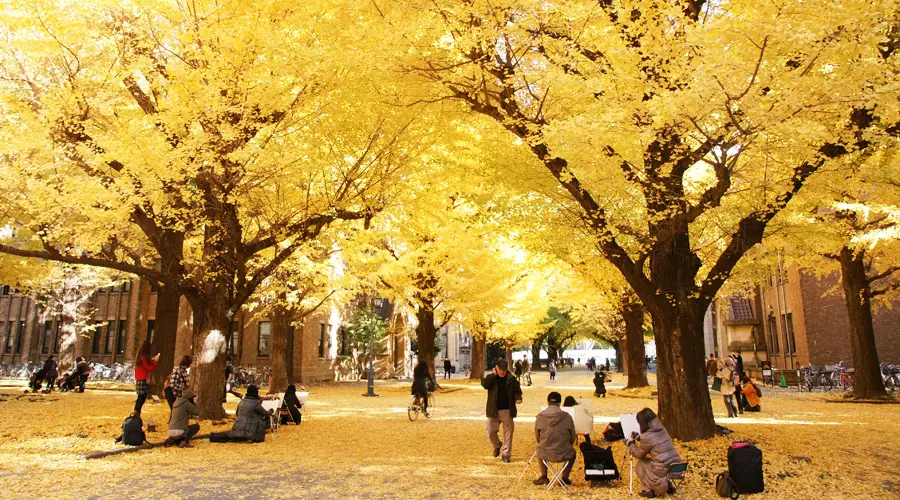
The University of Tokyo is one of the top universities in Japan.
SEE MORE:
This is where you study to get Bachelor’s, Masters or Ph.D. degrees. The typical duration of undergraduate programs, graduate programs, and doctoral programs are respectively 4 years, 2 years, and 3-5 years. The exception falls upon some fields such as medical, pharmacy, and veterinary science which usually take 6 years just to finish an undergraduate program. Many Japanese universities do offer programs taught in English but Japanese programs are much more diverse. The top universities in Japan include the University of Tokyo, Kyoto University, Keio University …
Junior college / Vocational schools– Senmon Gakko

Professions of junior college can vastly vary ranging from agriculture, nursing, business to game design, manga, anime or sculpture.
This is a common type of educational institution in Japan, which targets specialized and practical on-job training. Subjects or professions of junior college can vastly vary ranging from agriculture, nursing, business to game design, manga, anime or sculpture. There are even courses on dancing, music, or homemaking. These courses normally last for 2 or 3 years and almost only offer Japanese programs. So if you want to study at Senmon Gakko, Japanese is a must. The rewards are quite worthwhile since, with Senmon Gakko diploma, foreigners can work in Japan. Another advantage of Senmon Gakko programs is that you can always transfer to a university or you can choose a 3-year Senmon Gakko program which allows you to join the graduate program afterward.
Professional Traning Colleges and Colleges of Technology
The duration of studies in professional training colleges is quite short, from 1 to 2 years. Besides specialized knowledge and training in a specific career, usually in technology, this is where students develop some soft skills in the workplace.
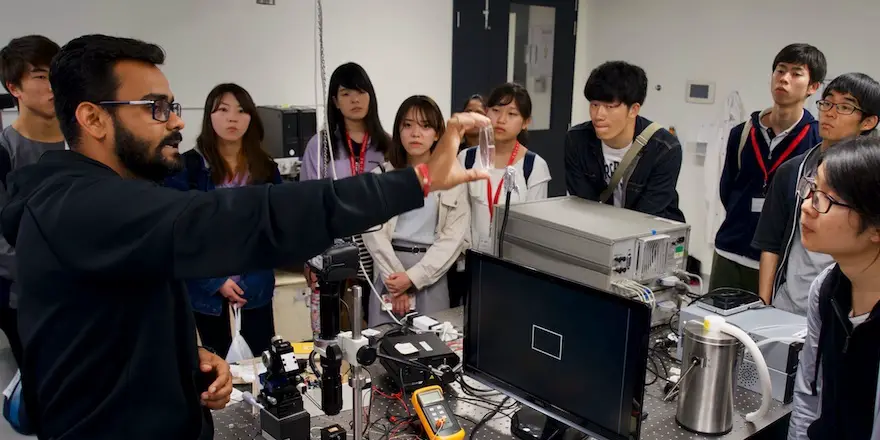
Besides specialized training in a specific career, usually in technology, this is where students develop some soft skills in the workplace
Colleges of Technology specialize in engineering, merchant shipping, mercantile marine, and other similar courses. The length is around 5 years and the requirement is completing junior high school.
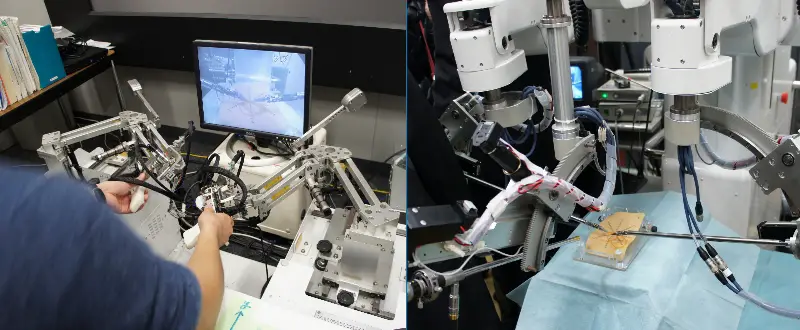
The length of study in colleges of technology is around 5 years.
Japanese Language Schools
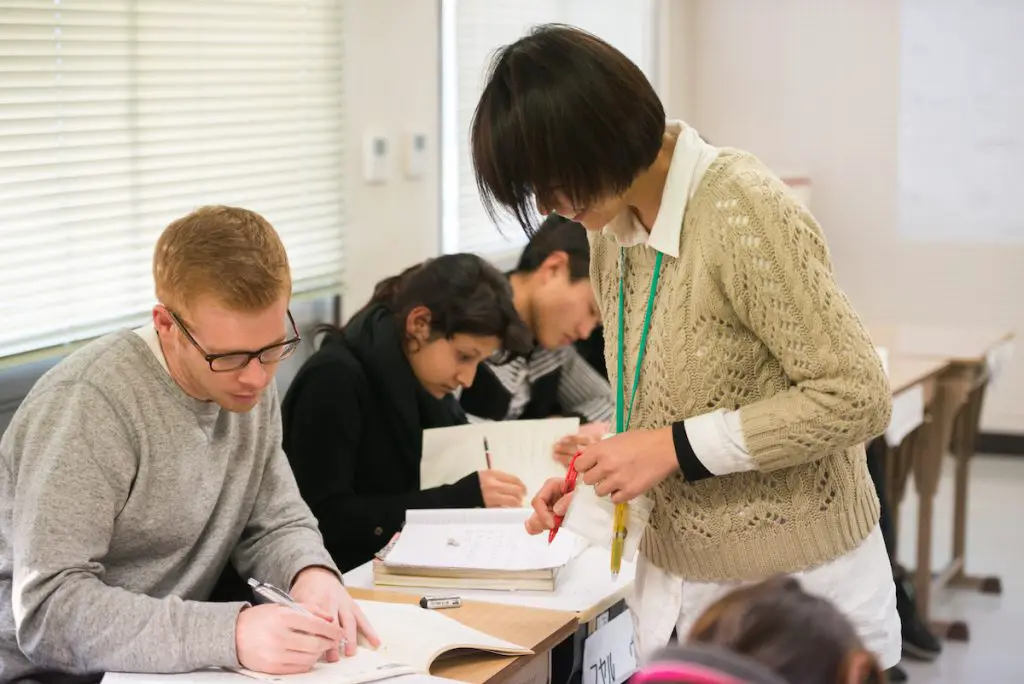
After 80 weeks of studying at a Japanese language school, students can be capable of studying higher education courses taught in Japanese.
These schools provide 2-to-12-week short-term programs and long-term courses based on students’ demands. Typically, after 80 weeks of studying at a Japanese language school, students can be capable of studying higher education courses taught in Japanese.
Different Paths to Study Abroad in Japan
There are three main ways foreign students get access to higher education in Japan. Each has its own pros and cons as follows:

Source: Japan Study Support
Schools and Studying Programs

There are countless school and program choices for international students in Japan.
As we mentioned above, there are countless choices for international students in Japan ranging from universities to Professional Traning Colleges, from Junior college to Japanese language schools; let alone studying programs. Therefore, the best way to decide your schools and studying programs is to do the research yourself through the following platform:
All in one search: https://www.jpss.jp/en/search/?tb=1
Search for Professional Training Colleges in Japan:
- https://www.sgec.or.jp/ryuugakuguide/search/index_en.html
- https://tsk.or.jp/?language=en
- https://tsk.or.jp/?language=en
Search for Japanese Language institutions:
- https://www.nisshinkyo.org/english/index.html
- https://www.mext.go.jp/en/policy/education/highered/title02/detail02/sdetail02/sdetail02/1383123.htm
Junior college in Japan:
- https://en.wikipedia.org/wiki/List_of_junior_colleges_in_Japan
- https://www.studyinjapan.go.jp/en/planning/know-schools/universities/
Japanese Language Programs at Japanese Private Universities: https://www.shidai-rengoukai.jp/s_courses/english.html
Other programs:
- https://www.gooverseas.com/study-abroad/japan
- https://www.goabroad.com/study-abroad/search/japan/study-abroad-1
- https://www.ef.edu/pg/study-abroad/japan/
Examination
Entrance examination
The content of the entrance examination will depend on the specific schools. However, typical requirements will include:
- EJU (Examination for Japanese University Admission for International Students)
- Language proficiency test: TOEFL/ TOEIC/ IELTS for English programs, JLPT for Japanese program.
- Written Examination
- Short Essay
- Interview
EJU (Examination for Japanese University Admission for International Students)
Almost any undergraduate seek education opportunity in Japan has to take EJU (Examination for Japanese University Admission), a standardized test for non-native speakers. While over half of private schools and 61% of public schools in Japan require EJU, 98% of national university applicants have to take EJU. If you refuse to take EJU, your range of choices will shrink considerably. You can come to Japan or some other nations in Asia to sit the EJU which is held twice a year, in June or December.
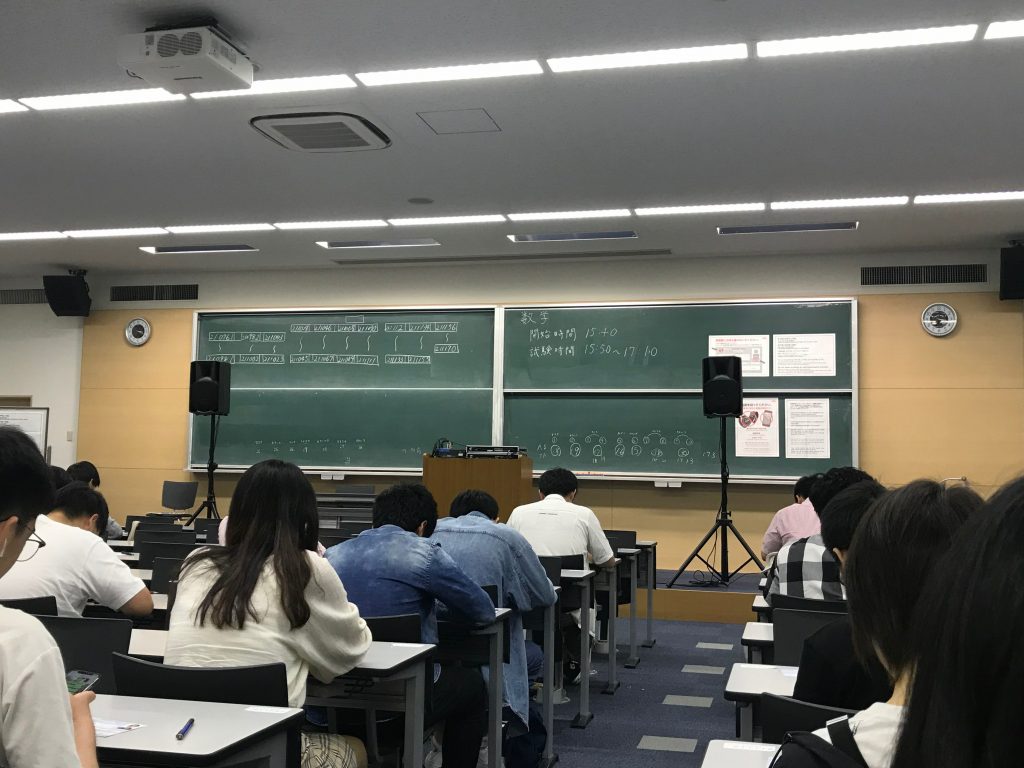
98% of national university applicants have to take EJU (Examination for Japanese University Admission).
A typical EJU will consist of:
- Japanese as a foreign language: 125 minutes, score range of 0-450
2. Science (2 of the following subjects: Physics, Chemistry, and Biology):80 minutes, score range of 0-200, or Japan and the World: 80 minutes, score range of 0-200
3. Mathematics Course 1 for liberal arts faculties or Course 2 for faculties where a higher level of mathematics is required: 80 minutes, score range of 0-200
Of course, the content of EJU will vary up to your study department. For instance, liberal arts faculties applicants will not take the Science examination but a Japan and the world test instead. Please find details in EJU website.
English-Language Proficiency Tests
If your study program is in Englị, you need to demonstrate your proficiency by either taking the test designed by the schools you apply to or standardized international tests. The second option including TOEFL, TOEIC, IELTS, Cambridge ESOL, is more preferable since you can use the result to applying for various universities.
Japanese-Language Proficiency Test
On the other hand, if you study in Japanese programs, as a foreign student, you may have to prove your language proficiency by JLPT result (the Japanese-Language Proficiency Test). Level 1 or 2 JLPT used to a must for international students to study in Japan until 2002 when the EJU test was put into practice. Even though its popularity decreases, JLPT is still required by a lot of universities and vocational schools. One advantage of JLPT is its diverse place of examination including many overseas countries. Find the list of places here: http://www.jlpt.jp/e/application/overseas_list.html
Examination in university
Once applicants successfully pass the entrance examination and enroll in the university, there are still a lot of midterm, final term exams ahead. In these exams, students will be graded in a 4-scale grading system as follows:

Expenses
Tuition fees
Compared to these in the USA or Europe, Japanese tuition fees are still quite reasonable, especially in national universities where the tuition is usually the same no matter the subject. Public and private schools will cost more, especially some departments such as law, economics, arts, and dentistry.

Source: Japan Study Support
Note that the tuition also depends on specific universities and programs. Typically, Bachelor will cost more than Master’s or Doctorate. Besides, international students have to pay for NHI (National Health Insurance). You should apply for it in the local municipal office once your visa is accepted.
Living costs
Aside from the tuition fees, international students have to cover numerous costs such as accommodation, transportation, food, … In total, the average expense falls between ¥100,000 ($900) to ¥150,000 ($1,300) per month. The cost will be much lower in the suburbs or the countryside than in big cities like Tokyo.
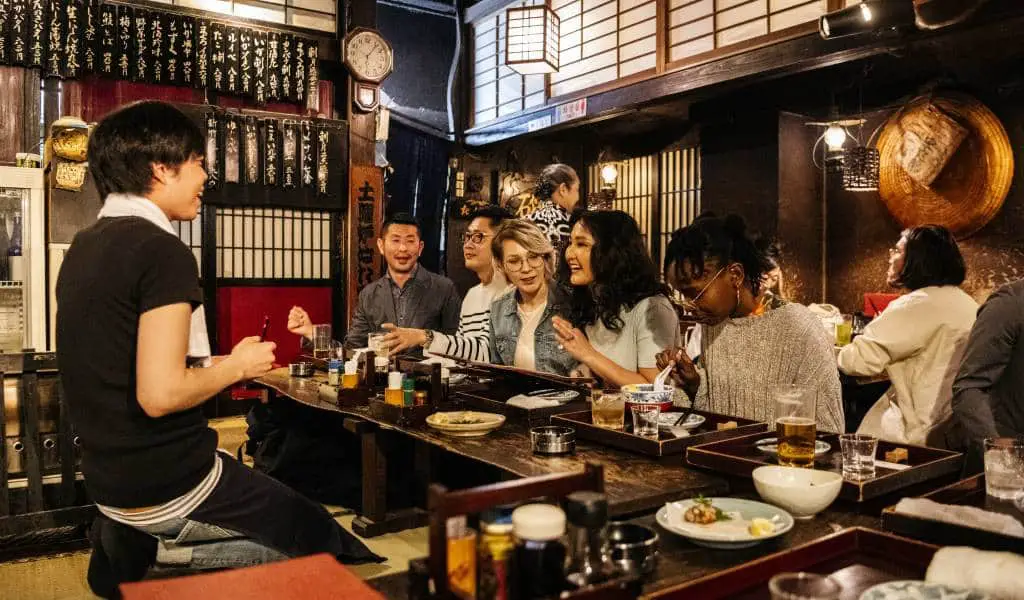
A meal in Japan costs around ¥900 ($8) to ¥2000 ($20).
Among all, the most costly expense in cities is accommodation which is usually quite small compared to its price. One studio apartment in Tokyo charges about ¥50,000 ($450) to ¥80,000 ($730) (excluding the utility fees). Otherwise, other costs in Japan are quite reasonable based on its standards.
For more details on living costs in Japan, read this article.
Scholarships
MEXT – the Ministry of Education, Culture, Sports, Science and Technology Scholarship
Since 1945, this scholarship offers undergraduate, research, exchange, or professional training colleges international students different perks. The monthly grant now is between ¥120,000 ($1,000) and ¥148,000 ($1,370). Besides, students get free airplane tickets to Japan, refunded application fees, admission fees, and tuition fees for schools.
To receive MEXT scholarships, students must get a Japanese university recommendation and fill out a form sent to your local Japanese embassy to get their recommendation too. Sometimes, the procedure is much simpler if your university takes care of your scholarship application.
JASSO – Japan Student Services Organization Scholarships
This is also known as Honors Scholarship for Privately-Financed International Students. The amount of scholarship is ¥80,000 ($730) and it is much less competitive than MEXT since the funds come from the contribution of State subsidy. International students of any study program including Japanese language schools can apply for the scholarships. But of course only ones with the most outstanding academic records or institutional financing conditions will be granted.
Local authorities and International Associations Scholarships
Local authorities also give away scholarships to international students in their areas. Moreover, some international associations hold scholarships, for example, USAC, The Freeman-Asia, The Bridging Foundation.
Private Foundations Scholarships
In Japan, you can find over 140 types of scholarships from private organizations. These private companies or organizations usually grant students of specific home countries, school districts,s or study fields associated with the company. This is a part of the companies social responsibility and reflects their objective along with the character.
Language Schools and Universities Scholarships
Schools and universities normally have funds for international scholarships themselves. The amount may be up to 50 or 100% tuition reduction or other assistance. Contact the international exchange center or office in charge of the school for more details.
- 50% scholarship for language courses at Waseda BK
- 25-100% scholarship for undergraduate programs at Yamanashi Gakuin University
- 30-100% scholarships at Kyoto University of Advanced Science
Part-time job
International students can work part-time at a maximum of 28 hours a week, but with the permission of the immigration office. On school vacations or semester breaks, the working time can be extended to 8 hours a day (40 hours per week). To apply for permission, you fill out the “Application for Permission to Engage in Activity Other Than That Permitted Under the Status of Residence Previously Granted” form in the Immigration Bureau (don’t forget to bring your passport and student visa). After that, the process takes few more visits and no less than 3 weeks. An easier way is to visit the immigration office in the airport as soon as you arrive in Japan.
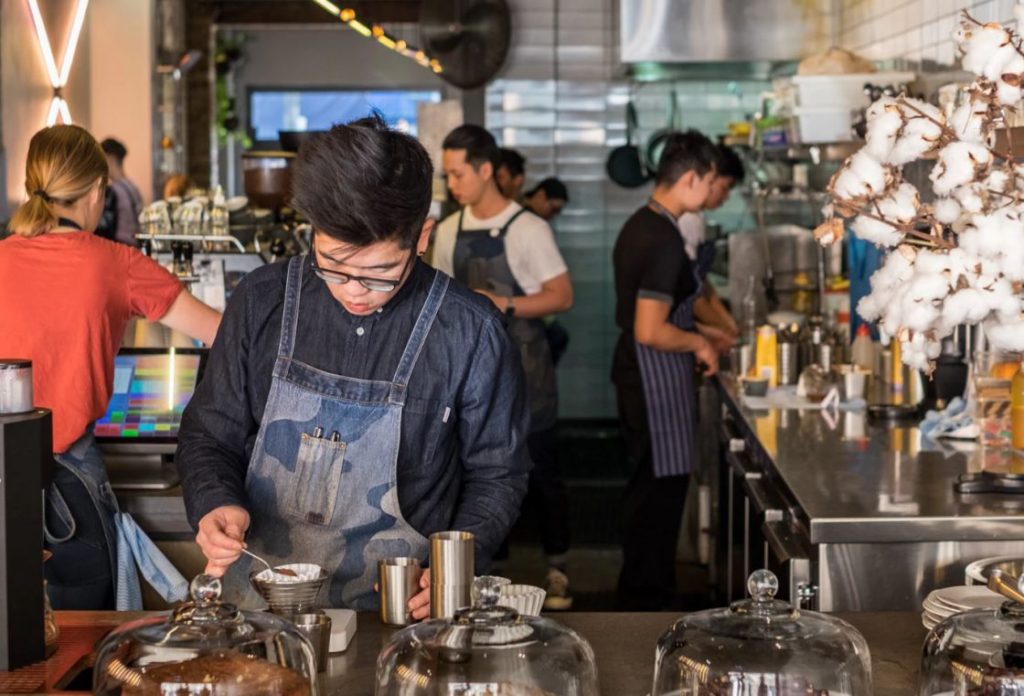
International students can work part-time at a maximum of 28 hours a week, but with the permission of the immigration office.
There is some jobs restriction which is any involved with night clubs, gambling, or adult entertainment businesses. No matter what you did there, DJ, dishwashing, or cleaning, working at these places is forbidden.
Regarding the income, working in a store or restaurant helps will pay you around ¥1000 per hour. But these jobs are only suitable for good Japanese speakers. Instead, students can teach their mother tongue languages at private centers, at their universities programs, or tutor at café. The salary is up to ¥3000 per hour.
Application Process

Preparation before studying abroad in Japan
Visa
First of all, check whether your home country is on the list of 50 countries that have the visa arrangement with Japan. If it is, you can stay in Japan without the need for a visa for 90 days. However, to study long-term in Japan, you still need to apply for a student visa. The requirement will be public on the website of the Japan Embassy in your country, for example, that of the Japan embassy in the USA is here. In general, you need your university to serve as the sponsor to get a student visa.
Language
Whether you study programs in English or Japanese, you still need to use Japanese in everyday life. Besides, learning Japanese is useful if you want to do a part-time job or work in Japan after graduation.
Accommodation
It is crucial to secure accommodation before arriving in Japan. A dormitory is an option but it is quite limited. So you need to confirm with your school right after the letter of acceptance, whether the dorm is available as well as all its related costs. Besides, also check how far it is from your school and how many roommates you have.
On the other hand, prepare to seek private accommodation. One common option is the foreigner guesthouse (gaijin houses). The rental price for this type of house is cheap and the rental period can be short. Therefore, it is a suitable temporary place to stay the first couple of months before you find a permanent house.


